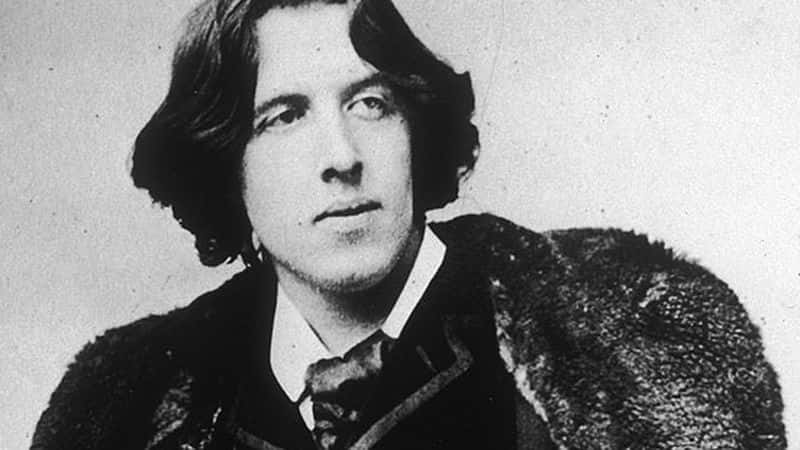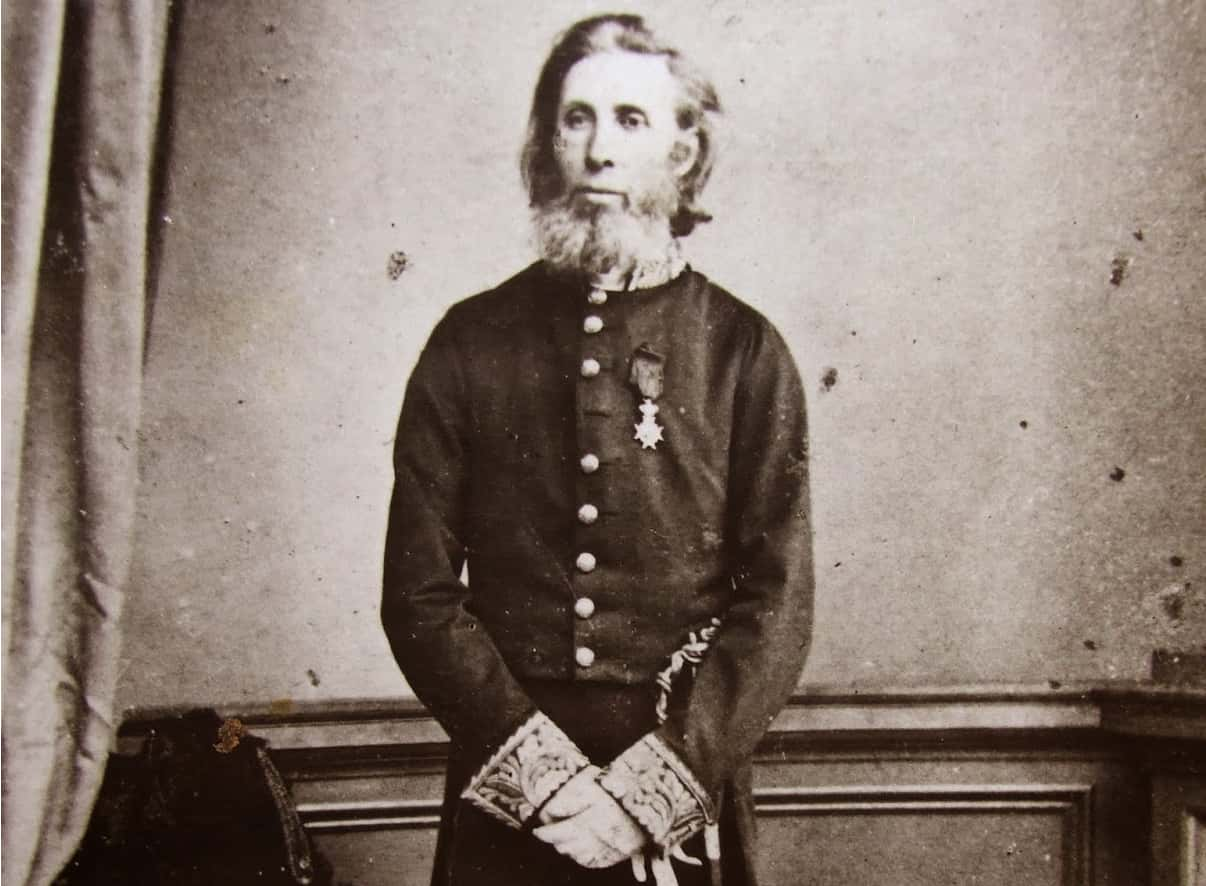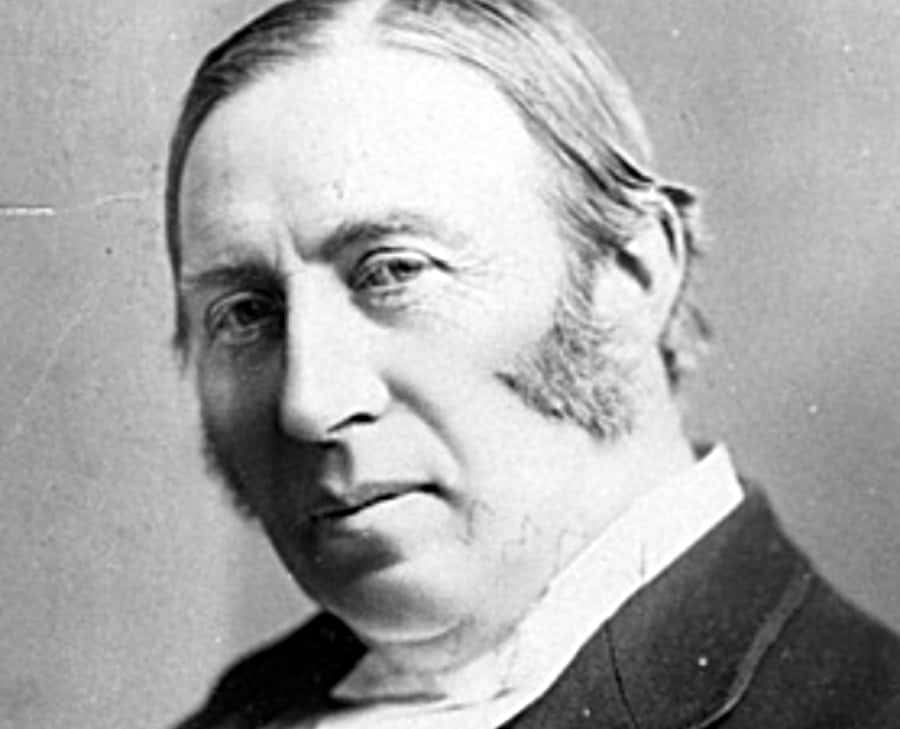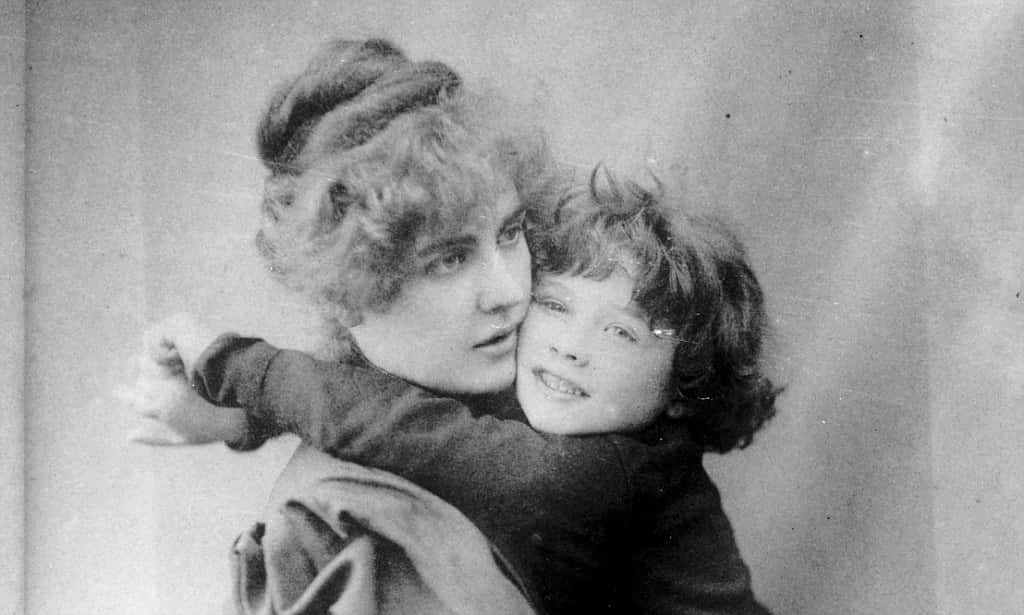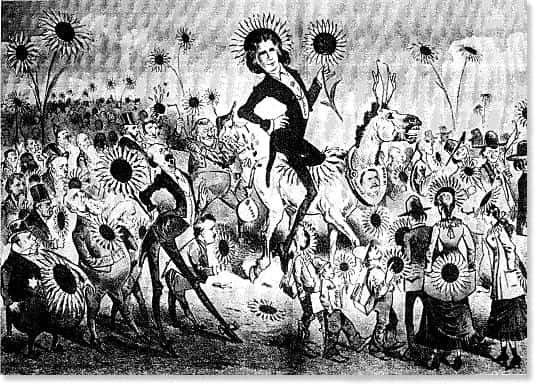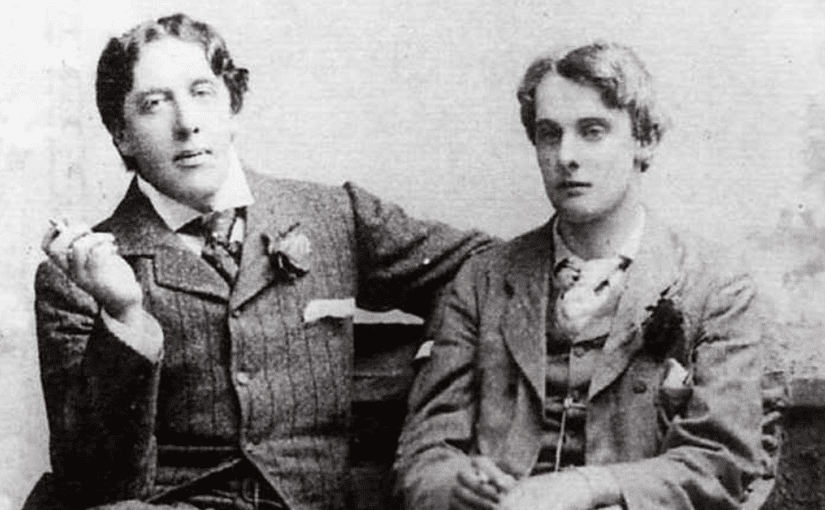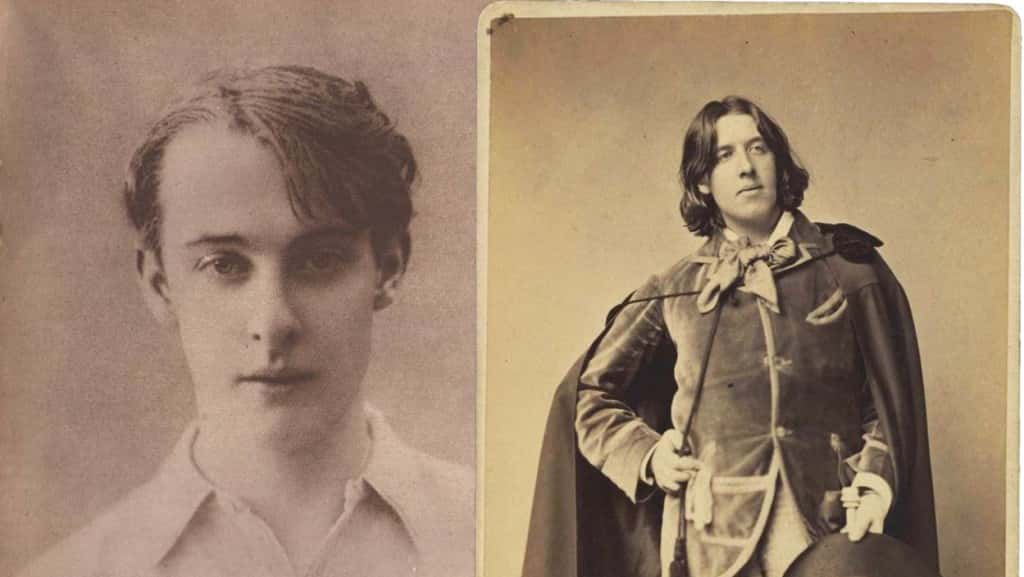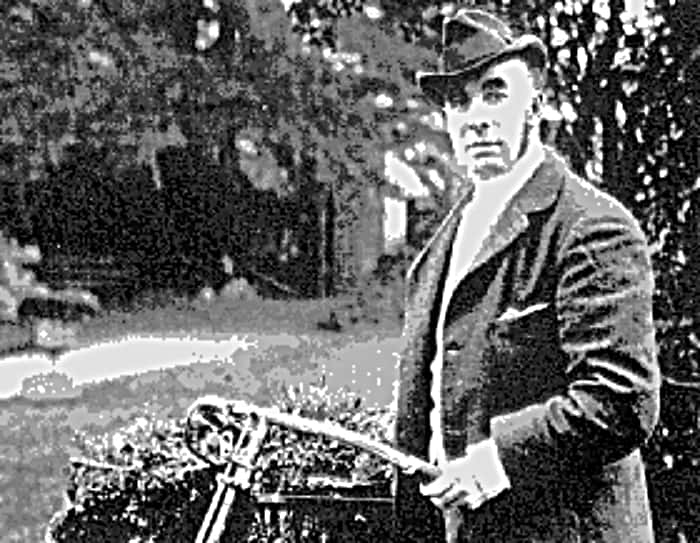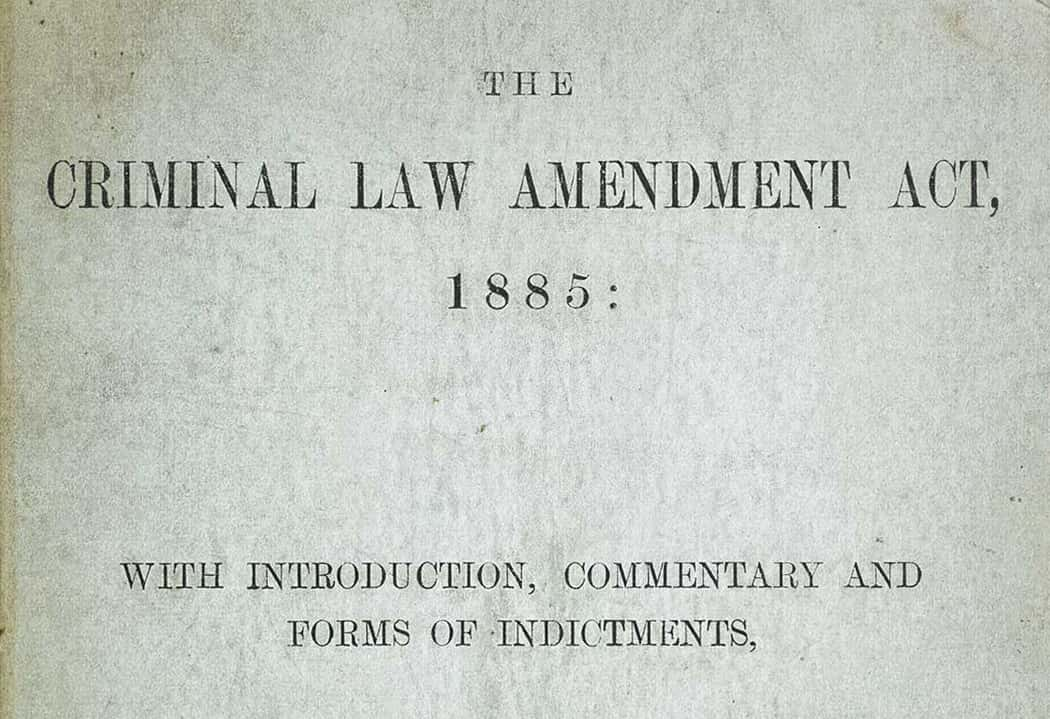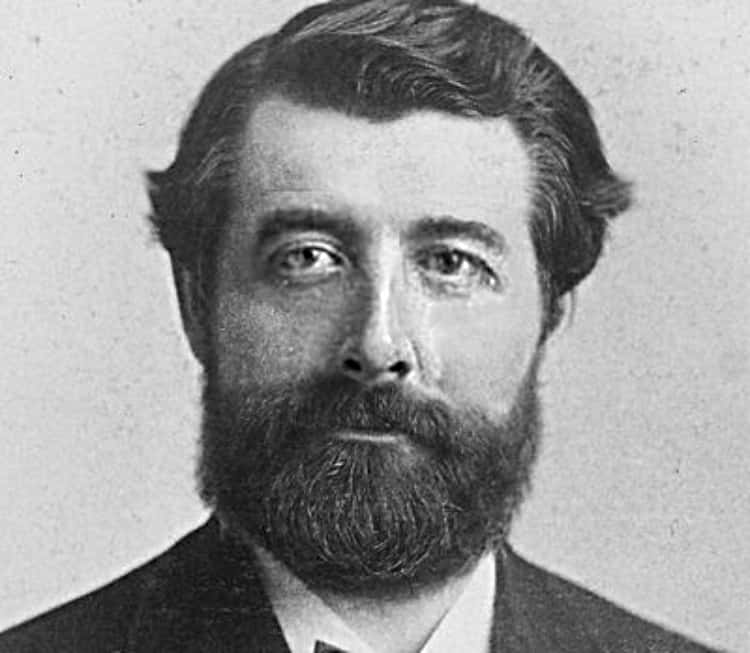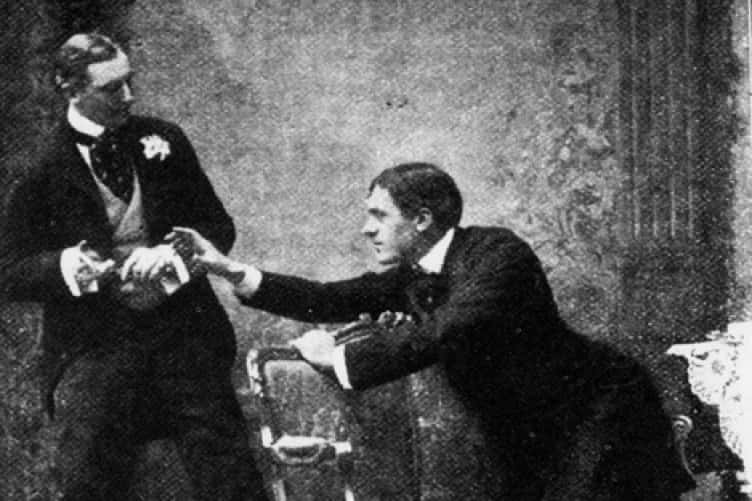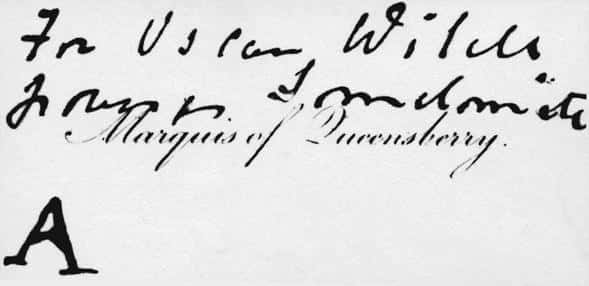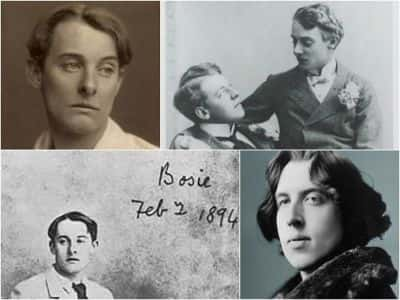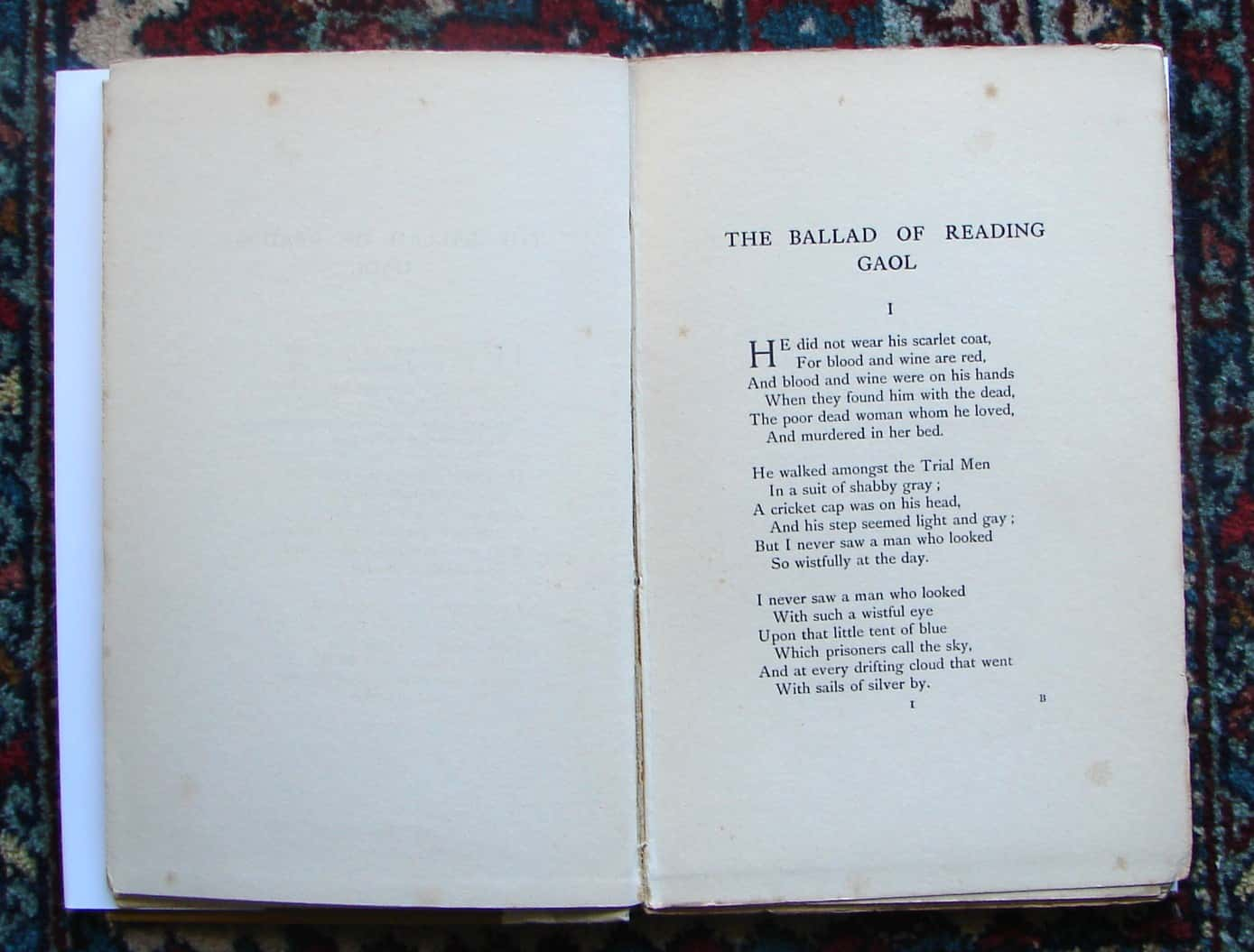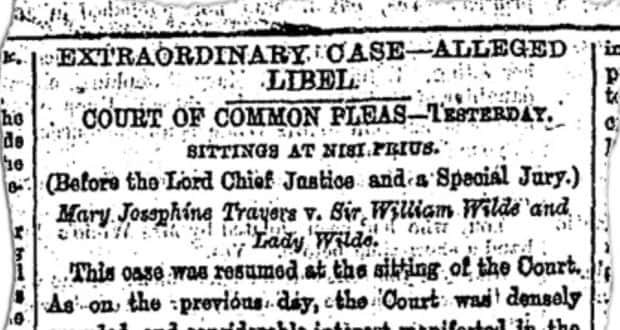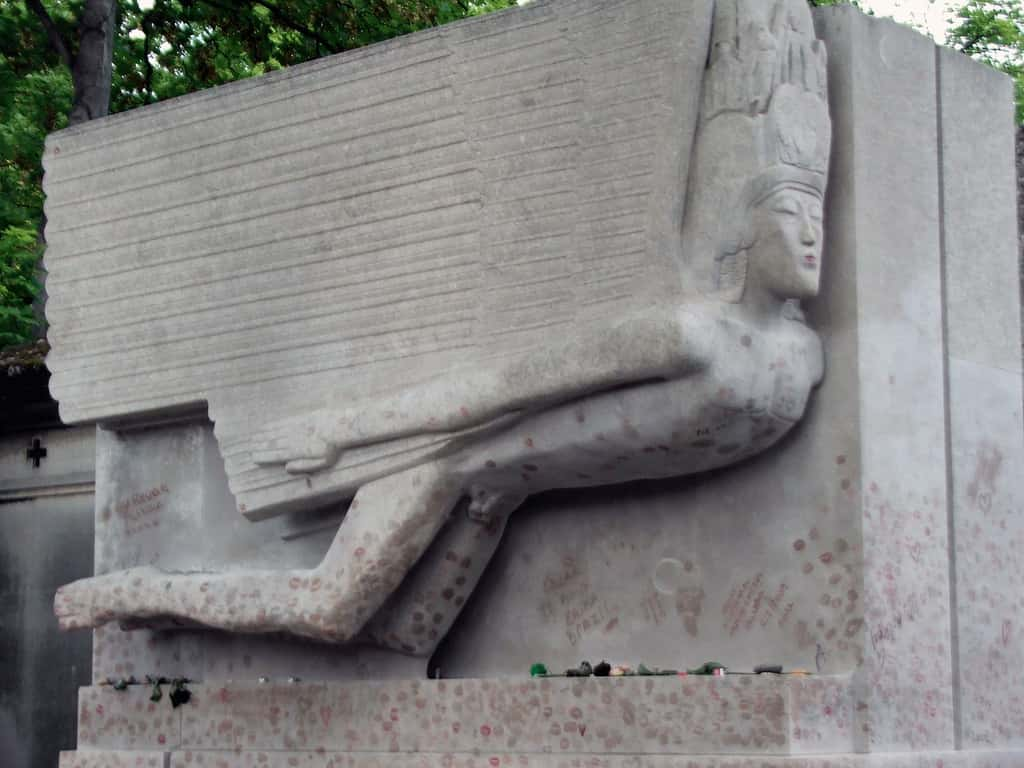"The only thing to do with good advice is pass it on. It is never any use to oneself."—Oscar Wilde.
Witty, eccentric, pompous, and mad for attention, Oscar Wilde has been called one of the first modern celebrities. He built his public persona with great care, delivering quotes that became immortalized instantly. Despite his social downfall, his imprisonment, and self-imposed exile, Wilde’s genius could not be suppressed. His work continues to inspire, and the way he lived his life is an incredible subject for analysis and study. Here, for your benefit, are 43 facts about this legendary Irish writer.
Oscar Wilde Facts
43. Famous Father
Wilde’s father was Sir William Wilde. Sir William was descended from a Dutch colonel who had come to Ireland with King William III when he was invited to depose James II and begin the Glorious Revolution. Sir William was one of Ireland’s most prominent surgeons in both ophthalmology and otology—that’s eyes and ears, for those of you looking confused. Sir William was actually knighted for his accomplishments as a surgeon, leaving some big shoes to fill for his children.
42. Mutinous Mother
Wilde’s mother, Jane Wilde, was a well-known Irish poet and a fervent Irish nationalist. She wrote poems under the pseudonym "Speranza" in support of Ireland’s 1848 uprising. She also once contributed an editorial to The Nation, calling for the Irish to raise arms against British colonial rule. She was also a noted women’s suffragist and advocated for women’s education. Safe to say that she took no guff from anybody!
 Sheroes of History - WordPress
Sheroes of History - WordPress
41. Legendary Alma Mater
From 1871 to 1874, Wilde studied at Trinity College, sharing a room with his older brother, Willie—yes, his name was Willie Wilde. (Named after his father, of course, but did he have to take on the nickname Willie?) Oscar rubbed shoulders with several noted scholars during his time at Trinity, including Arthur Palmer and the Irish critic and poet Edward Dowden.
40. A Complicated Relationship
Of all the people he met at Trinity, however, Wilde reserved the bulk of his admiration for his tutor, J.P. Mahaffy. Mahaffy inspired Wilde’s interest in Greek literature, leading Wilde to describe him as the man who taught him “how to love Greek things”. Wilde also regarded Mahaffy as his “first and best teacher.” For his part, Mahaffy was proud of his association with Wilde. That is, until Wilde’s scandal and trial ruined his reputation, whereupon Mahaffy dismissed him as “the only blot in [his] tutorship.” Ouch…
39. The Doctor Will See You Now
Wilde’s father was also a much-lauded philanthropist. He actually ran a dispensary behind Trinity College to treat poor people. This dispensary later evolved into the Dublin Eye and Ear Hospital, which still exists today.
38. Extended Family
Aside from his brother, Willie, and his sister, Isola, Wilde also had three half-siblings. They were his father’s children from a relationship out of wedlock. Regardless, Wilde’s father acknowledged them as his children and arranged for their education. He also had them looked after by his relatives rather than with his wife and their children—while he did help where he could, the awkwardness of that might have been too much.
37. Say That Again, Please
Wilde’s full name was Oscar Fingal O’Flahertie Wills Wilde. Try saying that half a dozen times!
36. One’s All You Need, Sometimes
Despite being a well-known writer who produced several plays, poems, short stories, and essays, Wilde only penned one novel in his entire writing career. The Picture of Dorian Gray has become a revered work by Wilde, alongside his theater work.
35. A True Friend
Of all the people who were intimate with Wilde in his life, it was Robbie Ross who proved the most loyal to him. Ross provided emotional and financial support to Wilde during his final years of exile and was with him during the last days of his life. After Wilde died, Ross repurchased all the rights to Wilde’s literary work and would legally go after any people publishing work under Wilde’s name. And that wasn't all he would do.
34. That's Cold
Wilde’s wife, Constance, visited Wilde when he was in prison late in his life to deliver the news of his mother’s death. Despite the fact that they had never formally divorced, she changed her surname and that of her sons from Wilde to Holland to save the children from the scandal.
33. On to Oxford!
Wilde’s success at Trinity College was such that his professors urged him to apply for a demyship at Oxford University—a sort of half-fellowship. Wilde won the demyship and took up studies at Magdalen College.
32. Farewell, Sweet Sister
Wilde’s sister, Isola, tragically died of meningitis at the age of nine. Wilde wrote a poem to honor her titled “Requiescat.”
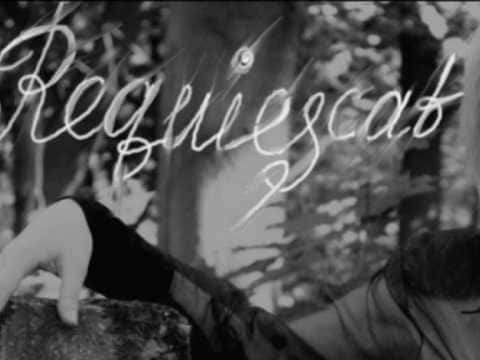 YouTube
YouTube
31. Appealing Aestheticism
The 19th century bore witness to the aesthetic movement. This movement encouraged art to exist for art’s sake, and no other cause—not financial, religious, or otherwise. As is evident in his writing, Wilde was a leading figure in the aesthetic movement, inspiring several others to take up the cause, even after Wilde’s downfall.
30. A Writing Partner
On May 29, 1884, Wilde married Constance Lloyd, who became the mother of his two sons Cyril and Vyvyan just two years later. The daughter of an Irish barrister, Lloyd was also a writer. In 1888, she published a book of short children’s stories titled There Was Once. The book’s short stories were taken from her own childhood, as told to her by her grandmother.
29. Can You Feel the Love Tonight?
The first truly passionate relationship in Wilde’s life that we know of began in 1891, when he met Alfred Douglas. Douglas was the spoiled and reckless son of John Douglas, the 9th Marquess of Queensberry—the man behind the Queensberry Rules of boxing. Wilde and Douglas began a stormy relationship, which led to many breakups and reconciliations, all while Douglas milked Wilde for his money and success.
28. An Abusive Relationship
In one of the many moments where Alfred Douglas’s selfishness led to deep bitterness in his relationship with Wilde, Douglas became sick with influenza. Wilde patiently looked after him in his illness, but Douglas refused to return the favor when Wilde fell ill with the same condition. Instead, Douglas got a room at the Grand Hotel and sent Wilde a bill for the room on his 40th birthday. Talk about a considerate birthday gift…
27. Love and Marriage
We will never know when Wilde’s wife, Constance, became aware of her husband’s homosexual affairs, but it’s known that they were sexually estranged from each other after their second son, Vyvyan, was born. By 1891, Wilde was in an intense relationship with Alfred Douglas, spending more time in hotels than in his own home. Allegedly, Wilde once lectured his sons on what would happen to bad boys who made their mamas cry, only for them to ask him what happened to papas who made mamas cry. If this incident did happen, we can imagine that for once in his life, Wilde might have been rendered speechless by a barbed retort like that.

26. This Seems Interesting
During his time at Magdalen College, Wilde developed an intense interest in Catholicism. He even spoke with several clergymen about converting to the Catholic faith. When his father found out, he disapproved immensely and threatened to cut off his financial support if Wilde became Catholic. Wilde himself, however, was encouraged by his own sense of individualism to call off his conversion. His fascination with Catholicism, however, remained with him for the rest of his life.
25. When Robbie Met Oscar
Long before he met Douglas, when he was just two years into his marriage, Wilde met a 17-year-old Canadian living in England named Robbie Ross. Ross and Wilde entered into a love affair, Wilde’s reported first in a line of several. Ross would remain close to Wilde for the rest of his life.
24. They’ll Get Used to It
Despite being regarded as a classic today, Wilde’s The Picture of Dorian Gray received a huge amount of criticism from Victorian society when it was released to the public. Wilde was accused of promoting hedonism, presenting a disgusting portrayal of high society, and slipping homoerotic themes throughout the book. Despite the early flak, the book has been adapted into more than 25 different films, starting with Dorian Grays Portræt in 1910.
23. Oh Snap!
Both Wilde and his secret lover, Alfred Douglas, had to contend with Douglas’s brutish father, the Marquess of Queensberry. Queensberry feuded constantly with his son, and he instantly developed suspicions about Douglas’ relationship with Wilde. In 1894, Queensberry confronted Wilde, declaring "I do not say that you are it, but you look it, and pose at it, which is just as bad. And if I catch you and my son again in any public restaurant I will thrash you!” Wilde, always ready for a battle of wits, replied "I don't know what the Queensberry rules are, but the Oscar Wilde rule is to shoot on sight".
22. Trend-Setter in All Respects
Wilde was the first famous case of a person being tried under the Labouchere Amendment, which was part of the law which made LGBTQ sex acts illegal and punishable by up to two years’ hard labor.
21. Don’t Misquote Me
Wilde was famously known for his quips and witticisms, whether he declared them in public or whether he included them in his writing. However, one line which he is alleged to have said—“Be yourself, everyone else is already taken”—has no historical evidence to back the claim that he said it. To be fair, Wilde had more than enough cutting lines to choose from, even without that one.
20. Let’s Get Silly
After Wilde received a great amount of condemnation for his criticisms of Victorian society through his book The Picture of Dorian Gray, Wilde decided to frame his satire in a different format to let society in on the joke. He turned to the comedic play, writing three societal comedy plays: Lady Windermere’s Fan, A Woman of No Importance, and An Ideal Husband.
19. No Turning Back
Wilde’s trial for gross indecency led him to being sentenced to two years’ hard labor, but what people don’t necessarily remember about that trial is that it initially ended with the jury being unable to make up their minds on whether Wilde was guilty or not. The suggestion was made to simply drop the case, as some felt that Wilde was being treated abhorrently by the legal system and the press, but the Solicitor General Frank Lockwood declined to let up on Wilde, as he felt the case was too politicized.
18. Ironic Ignorance
Wilde was a gifted linguist. After studying Greek for nine years, Wilde gained an extensive knowledge of the language. He was also fluent in German, French, and Spanish, aside from his delightful mastery of the English language. Strangely, though, despite his mother’s patriotism, Wilde couldn’t actually speak a word of Gaelic.
17. For the Kids
Believe it or not, Wilde wrote children’s stories as well. In 1888, Wilde published The Happy Prince and Other Tales, which was comprised of five short stories for children. These stories were titled The Happy Prince, The Nightingale and the Rose, The Devoted Friend, The Remarkable Rocket, and arguably the most famous one, The Selfish Giant. Despite their aim towards children, however, Wilde couldn’t resist adding in adult humor in The Remarkable Rocket, poking fun at the rampant narcissism within the aristocratic class. Did he tell the famous aristocrats joke in it?
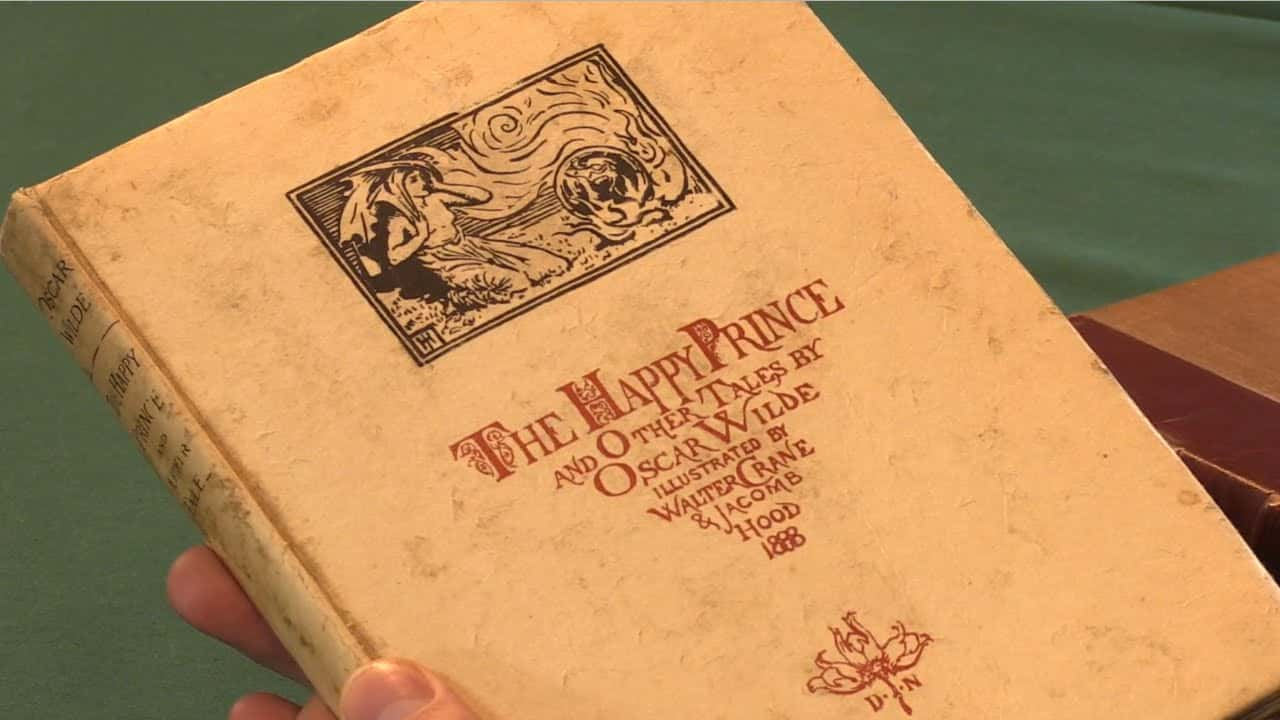 YouTube
YouTube
16. Morbid Merriment
One of Wilde’s most famous quips came during the last year of his life, in 1900. Wilde was in ill health, going on a rare walk with a friend, when he joked “My wallpaper and I are fighting a duel to the death. One of us has got to go." Later that same year, the wallpaper was still there, which is more than one could say for Wilde.
15. Cut Down in the Flower of His Youth
Wilde’s eldest son, Cyril, became a Captain in the Royal Field Artillery. During the First World War, Cyril was fighting in Europe when a German sniper killed him. Cyril was only 29 years old when he died in 1915.
14. My Son Lives On
Like his older brother, Vyvyan Wilde (later called Vyvyan Holland) served in the First World War. Vyvyan survived, became an author like his father, and also worked as a translator and editor for the BBC. His only son, Merlin Holland, has spent years of his life studying and examining his famous grandfather’s life, though he has yet to change the family name back to Wilde.
13. Bored Brother
Wilde’s brother, Willie, was famously lazy and apathetic. Despite being trained as a journalist and as a barrister, he tried to find himself a suitable wife to save him from having to work for a living. Mrs. Frank Leslie had already been married four times, she was 15 years older than Willie, and she was the owner of Popular Monthly. Despite an initial seduction, the formidable magazine magnate was disgusted by Willie’s refusal to work, and their marriage lasted only a year. Willie returned to London, sinking further into his lethargy.
12. No Queensberries Allowed!
The height of Wilde’s success was when he released his comedic play The Importance of Being Earnest on February 14, 1895. It was a wild triumph on stage, but while it represented the height of Wilde’s popularity, it nearly led to disaster. The Marquess of Queensberry prepared to attend the play and publicly accuse Wilde while throwing rotten vegetables at him. Wilde, however, got word of Queensberry’s plan and denied him a ticket.
11. Goaded Into a Lost Battle
On February 18, 1895, the Marquess of Queensberry left a note at Wilde’s club, accusing him of being a “posing somdomite”—he wasn’t great at spelling. Wilde had no choice but to sue the Marquess for libel. However, Queensberry’s lawyers immediately hired private detectives to investigate Wilde’s numerous affairs with other men to prove that Queensberry wasn’t guilty of libel, and thus leave Wilde vulnerable to prosecution for sodomy.
10. Things Fall Apart
Much to Wilde’s dismay, Queensberry found both ample evidence and several witnesses who confirmed Wilde’s secret affairs and exposed them to the public. The response was so excitable that at one point during the court proceedings, a devastated Wilde felt compelled to remind the court that he was supposed to be the prosecutor in the case. Queensberry was exonerated, and as Wilde left the court, a warrant for his arrest was issued. No doubt Queensberry had a good laugh about that…
9. Heck of a Pseudonym, Sir!
While he lived his final years in exile, Wilde took on the name Sebastian Melmoth. He was inspired by Saint Sebastian, who had been martyred for his cause, and the main character of Charles Maturin’s novel Melmoth the Wanderer. Even when he had lost everything, Wilde’s mind was as sharp as ever.
8. Wilde the Socialist
Another thing that people don’t always remember about Wilde was that he had a great interest in politics. Wilde wrote an essay called The Soul of Man Under Socialism. Wilde advocated for socialism, as he believed that one’s natural creativity is crushed under capitalism because everyone is too busy to try and solve the social issues which are created in capitalism. Feel free to read his points and decide how correct he was.
7. Who Do I Listen to?
Defeated in his libel lawsuit against the Marquess of Queensberry, Wilde was paralyzed into indecision. Robbie Ross urged him to flee before he was arrested, but his mother insisted that Wilde stay and face the music, fighting against those who would persecute him. Wilde ended up doing the latter, but whether he did it out of inaction or out of defiance is anyone’s guess.
6. Prison Hobby
Being sentenced to two years of hard labor didn’t stop Wilde from writing. He sent several letters to Lord Alfred Douglas. He also took the time to write an essay called The Ballad of Reading Gaol, which extensively detailed the brutal conditions under which Wilde was forced to live.
5. Secret Scandal
Wilde wasn’t the only member of his family to suffer from scandal. His father, Sir William, was accused of seducing a long-term patient of his, Mary Travers. Travers wrote a pamphlet demonizing Sir William for allegedly chloroforming her and having his way with her. Wilde’s mother voiced outrage to Travers’ father—a colleague of Sir William. This prompted Travers to sue Lady Wilde for libel—a charge which Wilde would come to know all about later in his own life.
4. Mommy's on Trial
The libel trial between Mary Travers and Jane Wilde only exacerbated the disgrace of the Wilde family. Sir William Wilde refused to sit in the witness box and was thus shamed by his peers for acting ungentlemanly. Travers won the case and was awarded a farthing for her honor—safe to say she might have argued that it was worth more than that. That said, the trial’s legal costs of £2,000 were ‘awarded’ to Lady Wilde, and she and her family withdrew from Dublin to the west of Ireland. Given how beautiful it is out there, we can’t blame them for making the move.
 YouTube
YouTube
3. Team Ross
Upon the death of his father, Alfred Douglas inherited his father’s estate and title. However, despite the fact that his spending had put Wilde into incredible debt, Douglas denied Wilde an allowance, and he lived out the remainder of his life in Paris. When Wilde died in 1900, Douglas was the chief mourner, though he allegedly got into a furious fight with Robbie Ross at the grave of their mutual lover. To be fair, if it did happen, we’re on Ross’s side.
2. Reunited Again
Since 1909, Wilde has been interred in the Père Lachaise Cemetery. His tomb was commissioned by his longtime lover and companion, Robbie Ross. Ross requested that a small compartment be made in the tomb for his own ashes when he died. In 1950, Ross got his wish, and his ashes were joined in the tomb with Wilde. Excuse us, we have to finish cutting some onions.
1. Talk About Homophobia
After Wilde had been found guilty at the end of his second trial, the judge presiding the case took the time to tell Wilde exactly how he felt about him. Reportedly, the judge declared “This is the worst case I have ever tried. It is my duty to sentence you to two years hard labor. The maximum the law allows, in my opinion, nothing like enough!”
Sources: 1, 2, 3, 4, 5, 6, 7, 8, 9, 10, 11, 12, 13, 14, 15, 16


